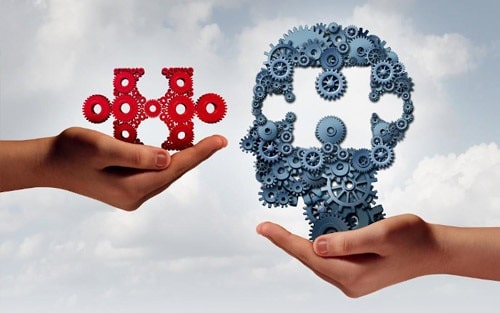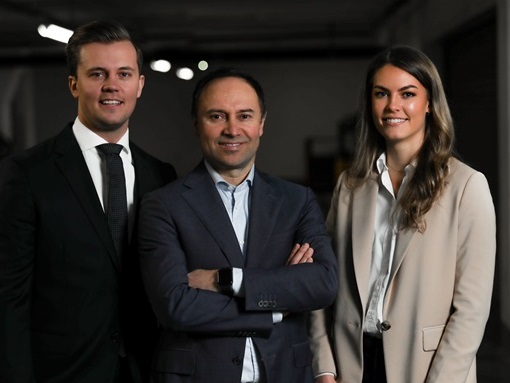Articles on the topics of excellence, unconscious biases and personality development
Mind your business focuses on the topic of excellence in decision making and decision support.
This can be applied in numerous areas. In this section you will find thoughts, ideas & articles to read in more detail.
The articles are based, among other things, on conversations. questions or impulses over the years > feel free to contact us for further suggestions!
If you are interested for the versions in German language - click on the Mind your business website in German language.
Most recent articles
Irrationality in financial controlling
How rational are professions whose main task is objectivity and neutrality? Digitalisation is often seen as key means to guarantee rationality - rightfully so?
Images of leadership
Which image do we have in our mind when we think of the "typical leader?
What prevents more diversity in companies?
FOBO, decision weakness and the role of Finance
What does the Fear of Better Options mean for the work in Finance & Controlling and how can we counter this phenomenon?
Click on the headline to read the full article
Response-ability - more than taking charge

The last weeks have made an impression - life has changed for all my friends and acquaintances. Suddenly home office, financial worries, the loss of the freedom of movement and usual possibilities, more pressure at work, loss of the main content of work - all this and much more.
Which competence helps us to deal with this better?
Conclusions from the crisis - how to proceed?

This year has been strange - many people have been rudely pushed off the beaten track and have had many, partly new, experiences in the last weeks. After having written last month about what the crisis is doing to us and which competence is useful right now, I now ask another question: What conclusions can we draw about how to proceed?
Biases during company start-up and expansion

Starting up or expanding a business means making many decisions. Our unconscious side is of course highly active and easily leads us on the wrong track - here are the most important biases that have also accompanied me intensively in the recent months.
[In der Blog-Übersicht wird hier ein Weiterlesen-Link angezeigt]
Overconfidence
Self-confidence is good and necessary in Business life. This thinking error, however, lies in seeing one's own abilities and judgements much better than they are. This also includes being able to assess the personal influence on a result.
It has been proven in many studies that the confidence in one's own assessments and prognoses is significantly higher than the corresponding accuracy. In addition, the role of chance is often seen as too small.
What can become problematic?
Reality does not necessarily stick to how we believe we can influence it. Especially in the phase of business plan preparation, in forecasting the demand for our own products in general and in customer acquisition in particular, Major errors can occur due to this bias.
The combination with excessive optimism (see December newsletter) can lead to risks being overlooked (and therefore not taken into account) and generally positive aspects being weighted too heavily and disruptive factors being hidden.
Confirmation Bias
This bias allows statements and information that support our existing opinion to be given greater weight than those that speak against it. In addition, it easily leads to selective perception and leaves important information hidden.
The effect is strongly influenced by how our environment is structured (conform vs. diverse), which sources of information we consume or how the opinion-forming process works.
What can happen?
During business foundation or expansion we invest a lot in our idea - emotions, time and money - and have relatively few facts that give us certainty. The challenge is to objectively assess the constantly new information coming in over time, therefore to interpret both positive and negative signals correctly.
Not every plan or part of the company will be successful, the confirmation error can easily lead to following an idea for too long and not changing track in time (there is a close connection to sunk cost fallacy).
Self serving bias
This is the tendency to blame external factors for failures (customers, competitors, partners,...) and to attribute success to one's own competencies, skills and decisions. This easily leads to an intensification of the overconfidence bias discussed above.
Why? The overconfidence bias is based on the distorted assessment of one's own influence on the outside world. If we now refer to positive events as an effect of our own competence, we believe in them more and more firmly and distance ourselves further from reality.
Which effects might follow?
Assessing business success as realistically as possible is a major challenge, since the next decisions as well as corporate management are based on it. Small units in particular can easily draw the wrong conclusions here, provided they do not involve people who relativize the perspective by looking at it from the outside.
Important decisions need a good foundation and are ideally illuminated from different perspectives. Feedback, questions and sparring need not take long (the "stupid" questions can be the best) - to refrain from this certainly poses a risk.
How can I take the topic further?
In addition to these 3 biases, there are more that are relevant in the start-up phase as well as in the reorientation of the existing business - feel free to contact me for further information.
We develop concrete measures against these and other biases in workshops and webinars.
B2B Online Europe 2019
I had the pleasure of chairing this year's B2B Online Europe Conference in
Barcelona on the second day.
Well-known companies such as Microsoft, Siemens
or ABB presented their paths in various digital topics such as eCommerce,
Customer Experience or digital strategies.
B2B Online Europe 2019
I had the pleasure of chairing this year's B2B Online Europe Conference in
Barcelona on the second day.
Well-known companies such as Microsoft, Siemens
or ABB presented their paths in various digital topics such as eCommerce,
Customer Experience or digital strategies.
[In der Blog-Übersicht wird hier ein Weiterlesen-Link angezeigt]
I took the following three points with me as
the most important:
- Focus on individual customer needs as a success
factor
- Using data effectively and responsibly at the same time
- Human"
topics such as change management (also internally!), overcoming organizational
silos and the right competencies in the organization are at least as important
as pure technology.
My keynote was mainly about the third point and had the titel "Customer centricity and analogue implications". It was an outlook what digitalisation means to the "analogue" devices of human beings. There are massive changes ahead of us, consequently the question is which competences are needed to deal with them.
Essentially I expect three field of necessary change:
- Digital competencies - rather straightforward to name, less clear what exactly needs to be done
- Leadership competences - digitalisation means that the ecosystem in companies is changing. Conference participants saw organisational silos as main problem.
- Cognitive & social competences - less straightforward but key as shown in recent studies. Challenge here is that these competences are not as clearly visible as technical skills for needed in order to make individuals fit for the future.
The detailed considerations are summarised in a separate document - if you are interested, just click to download the extended version of my speech.



